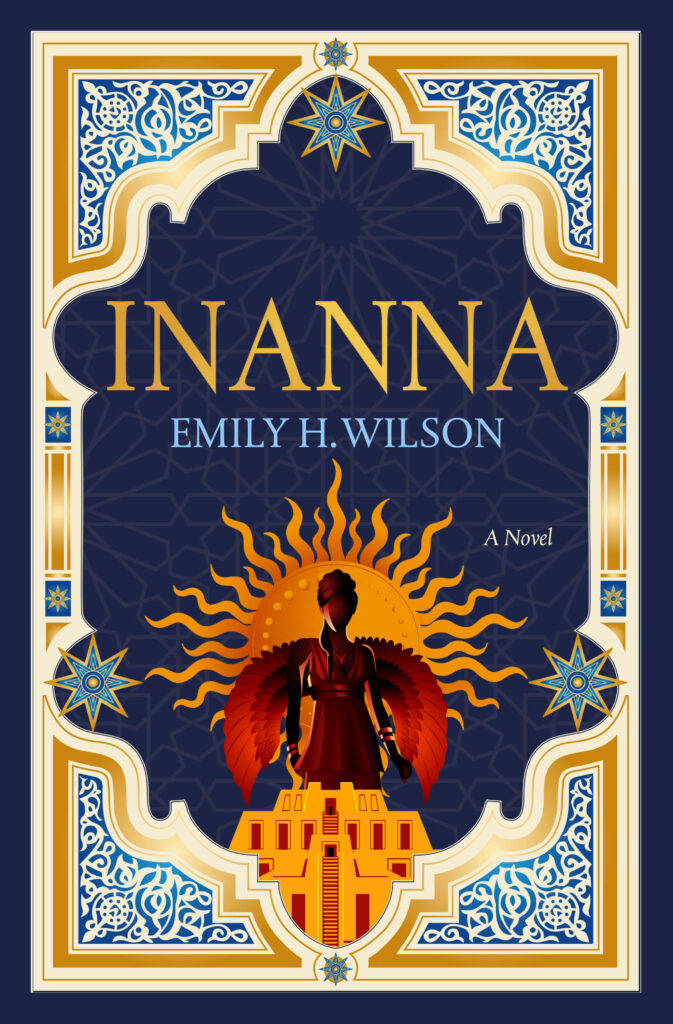
Genres: Queer Protagonists
Representation: Middle Eastern setting and cast, Black MC, bi/pansexual MC
PoV: First-person, past-tense, three POVs
Published on: 1st August 2023
ISBN: B0BDK4R3SL
Goodreads

The fates of a young goddess, a warrior, and a mortal soldier collide in this enthralling and lyrical fantasy re-telling of The Epic of Gilgamesh that will captivate readers of Madeline Miller and Jennifer Saint.
Stories are sly things…they can be hard to catch and kill.
Inanna is an impossibility, the first full Anunnaki born on Earth. Crowned the goddess of love by the twelve immortal Anunnaki who are worshipped across Sumer, she is destined for greatness.
But Inanna is born into a time of war. The Anunnaki have split into warring factions, threatening to tear the world apart. Forced into a marriage to negotiate a peace, she soon realises she has been placed in terrible danger.
Gilgamesh, a mortal human son of the Anunnaki, and notorious womaniser, finds himself captured and imprisoned by King Akka who seeks to distance himself and his people from the gods. Arrogant and selfish, Gilgamesh is given one final chance to prove himself.
Ninshubar, a powerful warrior woman, is cast out of her tribe after an act of kindness. Hunted by her own people, she escapes across the country, searching for acceptance and a new place in the world.
As their journeys push them closer together, and their fates intertwine, they come to realise that together, they may have the power to change to face of the world forever.
I received this book for free from the publisher via NetGalley in exchange for an honest review. This does not affect my opinion of the book or the content of my review.
Highlights
~what are gods anyway?
~where are the stories coming from?
~fake wings
Mythological retellings are always a risk, especially when it’s a myth – or mythological figure – you particularly care about. Everyone has a slightly different take on an ancient goddess, and sometimes whether or not the book is any good is irrelevant, if the author’s take differs too much from yours.
That’s not the problem here, though. Inanna just isn’t a very good book.
Inanna switches between three PoVs; Inanna herself, a newborn goddess when the book opens; Gilgamesh, the mortal son of a god, who is really just out to have a good time; and Ninshubar, a runner and huntress from a tribal society far, far away from Sumer, the book’s main setting. If you happen to have a special interest in the mythology of the goddess Inanna, Ninshubar’s inclusion will probably make you sit up and pay attention – I wasn’t expecting to see her here, and was pleased to be wrong.
If you don’t know much about ancient Sumer and its myths, then…this may be a bumpy road for you. Because something I noticed almost at once was how little Wilson explained, or even described, the world and characters she created here. For example, the gods – known as the Anunnaki – seem to be divided up into ‘water gods’ and ‘moon gods’ and so on – but what that signifies is never explained. Are their powers sourced differently? Is it like a political party kind of thing? Are they different families or bloodlines? I have no clue.
Or we can talk about the famous and Very Impressive elephant gates, to which we are introduced thusly
Enkidu walked towards the elephant gates with his head craned backwards, and his mouth open. “Is it all one piece of stone?” he said.
“No, three pieces,” I said. “Each elephant is carved from one whole lump of granite, and then the centrepiece from a third.”
…Hi, I have no idea what I’m supposed to be picturing right now. How are these three (?) elephants positioned so that they make a gate? Is one standing on top of the two others to make the top arch of the gate? Are the elephants on all fours or rearing? Or are there only two elephants, and the centrepiece is something else, not another elephant? If this is supposed to be a big impressive thing, why are you not describing it at all???
Alternately, sometimes we do get descriptions, but they make no sense
When the ancient throne was empty, Inanna took her place on it, her feet dangling. She looked very small and plain, in her old white dress. And yet she looked like she belonged there.
…No, now you’re contradicting yourself. If she looks small and plain, she cannot look like she belongs in a throne. If she looks like she belongs in a throne, then she must not look small and plain, even if only by force of charisma or presence or whatever. Make up your mind which!
Story-wise, I was not impressed. Inanna feels like a series of things Happening Just Because, with too many random side-quests that go nowhere and make no sense. (If An thought the super important extra-special thing was in location x, why didn’t he go himself, or send someone he trusted, decades or centuries ago, instead of waiting all this time and then handing off the quest to Gilgamesh? Etc.) Ninshubar’s arc was the most interesting from beginning to end – it certainly didn’t hurt that, coming from another culture, she’s extremely sceptical of the Sumerians and Anunnaki, and doesn’t buy into what they’re selling; for much of the book, she was the only sensible character, annoyed and frustrated with the passivity of the rest of the cast. It was easy to identify with her, because I, too, wanted to grab Inanna and shake her. (More on that in a minute.) As a retelling of the Epic of Gilgamesh, I think Inanna fails pretty hard, not least because I didn’t once feel the deep, all-consuming love that’s supposed to be there between Gilgamesh, one of our protagonists, and Enkidu, a man whose life he saves. Whether you interpret it as romantic or platonic, that intense passion is the defining quality of the Epic, and it just isn’t here. You could have cut Enkidu from this book completely, and it would have made very little difference to anything. His part in Inanna, and thus Gilgamesh’s relationship with him, is a blip, there and then gone.
What on earth was the point?
Gilgamesh and Inanna both come across as very passive characters; Gilgamesh is moved around the political board by higher powers, going from one place to another and back again to very little purpose, and Inanna…
Dear gods, how do I talk about Inanna in this book?
Inanna, the goddess, is the goddess of love and war. She is the Queen of Heaven. She made a huge mark historically – you can see iterations of her all across the Fertile Crescent, and can make a very strong argument that even later goddesses like Aphrodite and Venus were heavily influenced by her. So she is slash was, a big deal.
Wilson…makes some very weird choices regarding Inanna’s powers and personality and overall arc that I did not like, and that I think made for objectively bad storytelling. For example, despite being told, while still an infant, by the king of the gods that she will be a goddess of love and war – something she remembers perfectly, because fair enough, I guess gods don’t lose those early memories – despite being specifically told not to forget the war part… Inanna absolutely forgets the war part. And never tells anyone about it. We later find out why the king never tells anyone – sorta – but it remains absolutely inexplicable to me that as a young, proud goddess, Inanna would never mention it, never boast about it, never even think about it. Inanna also has no powers – the object that is supposed to give or be her power, called a me, does not work. No one thinks to ask the king, who gave it to her, what it does or how to activate it, apparently. That would make too much sense, I guess.
View Spoiler »The point is, Wilson takes this immensely powerful goddess, and makes her powerless. Which I strongly feel defeats the entire purpose in writing about Inanna. Arguably worse: Inanna has no curiosity about anything. She asks no questions. She doesn’t think about things. She has no drive and no passion. Sure, her mother tells her to submit to her husband’s family, when she goes and gets married – but Inanna isn’t emotional or curious or anything underneath that submission. The submission could have been written as a mask, with A Lot going on underneath; instead, Inanna feels flat and two-dimensional, bizarrely shallow. She’s either passively moved by the plot, or she acts on a whim that comes out of nowhere; she never has any thoughtful agency. Her Big Moment, when she defies her husband’s family and goes questing, is…her getting up and walking out of the city. Walking. With no supplies, no map, no allies, no plan. She just gets up and walks, naive as a flower fairy, handwaving all the ways in which this is completely irrational.
But she is wearing the fake wings made of eagle feathers the Anunnaki wear for special occasions, so there’s that, I guess.
What?
Then there’s the sexual abuse. For the record, it happens off-page, but it’s there, so if that’s a trigger for you, well, now you know.
I really, really struggled with this. I don’t want to read about molestation and paedophiles, I find it deeply unpleasant, but that’s a personal taste thing and doesn’t actually make the book bad. What I think does make the book really, really fucking bad is how appallingly it’s handled, by the characters and the narrative. I don’t know why you would write Inanna as a victim of sexual abuse, but maybe it could be empowering for other survivors, if they saw Inanna go through this and still rise to become Queen of Heaven. That could be a thing. I could buy that.
I cannot buy how nonchalant Inanna is about what happens to her. I cannot buy how it has zero effect on her personality, on her outlook, even on her views on or approach to sex. Inanna thinks it’s no big deal – and the narrative doesn’t contradict her. It’s irrelevant. It means nothing. It affects nothing. And I can’t help thinking that’s a hugely ignorant, stupid, and disrespectful way to write about a very painful, difficult topic. What in the actual fuck.
(Also? You did not have to write her as getting married at 13. This is spec fic. If you have gods, you can make the age of consent whatever you want it to be. Alternatively, you could choose to not have her grandfather be a disgusting groomer paedophile. That sure was a Choice That Was Made. Fucking yikes.)
I mean, it goes down like this, a passage which made me throw up in my mouth.
“I’ve got a new game I would like to play with you,” he said.
“What is it, Grandfather?” I kept my hands soft in my lap.
“Come into my bedroom and I will show you,” he said.
For some long moments, we looked at each other.
“What are you thinking?” he said, his leopard eyes gleaming in the firelight.
“That I am a goddess of love,” I said.
I lifted my chin to him, to show that I was not afraid.
“Come and love me, then,” he said, and put out his hand to me.
What did I just read, and why did you make me read it, when the entire book goes on like it never happened?
If I haven’t made it clear yet, I think the prose here is blunt and plain and…unalive is the best way I can think to describe it. And this is a very bad style in which to rewrite myths. Possibly the best-known myth about Inanna is the Descent, wherein Inanna goes down into the underworld and, later, manages to return. It’s always given me goosebumps. But here, it is stripped of its magic, stripped of the ritual, the hypnotising insistence that Inanna must remove or leave behind an item of power – a tie to the living world – as she passes through each of the seven gates. Inanna takes the grand, spine-shivery story of the Descent and reduces it to banality, quick and rushed, and gods it made me miss Vellum, which did the Descent properly. I’m going to have to reread it, to wash this mess out of my memory.
But it’s all like that. There’s no magic here. There’s no awe and no wonder. And sometimes that’s because the writing isn’t up to the task of creating it, but sometimes it’s due to narrative choices – like making the Descent a simple matter of passing through doors. In both cases, it makes for a majorly disappointing reading experience.
View Spoiler »There are so many other bits and pieces I want to talk about, things that make no sense or contradict other things, but they’re all spoilers and this rant review is already very long. I am Tired of talking about this book. Inanna is not entirely without merit – there’s some sneaky stuff going on in the background that is horrifying but very clever, and will no doubt be a much bigger deal in the sequel. And that was one hell of a le gasp!!! ending. But this is not a book I would recommend to anyone who loves Inanna-the-goddess, and I would definitely not want it to be anyone’s introduction to her. Irrespective of that, I genuinely think this is an objectively boring, poorly-written novel – perfectly fine on a technical writing level, but soulless, and packed full of things that happen, or are the way they are, Just Because, regardless of whether they make sense or not.
Borrow it from the library if you must, but I cancelled my preorder. Inanna isn’t worth your time, and certainly not your money.

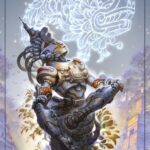

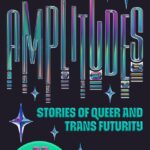
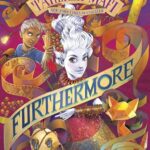
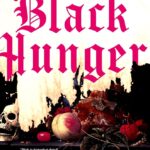
Leave a Reply